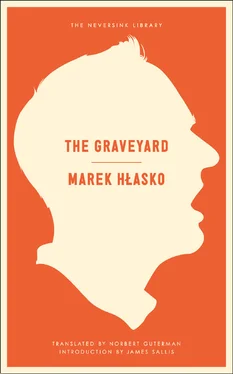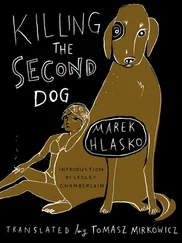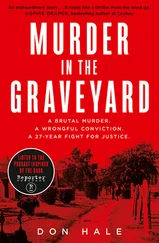“Over there.”
“Where that tall house is?”
“Yes. I’m going that way myself.”
They walked along a wet path, avoiding puddles. The stranger asked: “Are you going to watch them clear the snow?”
“What are they doing?”
“They’re clearing the snow.”
“Where?”
“From the roof of that very house. My son told me, so I’m going to watch.”
True enough, before the tall building toward which they waded through the slush stood a large throng of spectators, craning their necks. On the roof a man with a shovel was busily tossing piles of snow into the street; the object of the game was to try to hit an unsuspecting passer-by. From a distance they could hear the happy laughs and enthusiastic shouts that greeted each heave of the shovel.
“I beg your pardon,” the stranger said, tipping his cap. “I must drop in to see a friend, he’ll be glad to …” He scrutinized Franciszek’s face. “Are you by chance from Bloc Committee No. 385?”
“Me? What gave you that idea?”
“I’m only asking. We’re expecting a lecturer today, and, seeing that you’re not from this neighborhood, I thought it might be you. He’s going to lecture about the sun or something. They say we’ll be getting electricity from the sun. Do you think that’s possible?”
Franciszek was about to reply when a mad turmoil broke out before the tall house, and both he and his companion turned their heads. The man with the shovel had succeeded in dropping an avalanche of snow on the heads of three passing hunchbacks, who stood dazed, not knowing what had happened to them. The onlookers were delirious with joy; the man on the roof was shouting merrily, triumphantly waving his shovel.
“Is it possible?” the stranger asked thoughtfully.
“What?”
“That electricity business.”
“Yes, certainly … someday. Goodbye.”
“Someday,” the stranger repeated, and walked off. To the accompaniment of the happy clamor, Franciszek continued on his way until he found the house he had been looking for. It was an old tumbledown building; the wind was tearing at pieces of rotten tarpaper on the roof. Surprised by the squalor of the place, Franciszek stood staring for a few moments, then, with a shrug, plunged into the shadows as into dark water. He waded on blindly, groping for the wall — at last he touched its rough ratlike dampness, and drew back his hand in disgust. There was a smell of washing, of children; from an upper floor came the echoes of a quarrel. He struck a match, and looked for the number by the light of its uncertain flame. At last he stopped at a door, and knocked.
No one answered; a woman was shouting loudly on the same floor. Franciszek was about to leave when he thought he heard a rustling noise behind the door. He knocked again, and then again, louder; at last he heard the sound of shuffling feet.
“Who is it?” a woman’s voice asked.
“Is Mr. Zakrzewski at home?”
There was a moment’s silence. “What’s your business?”
“I want to see him.”
“And who are you?”
“Kowalski.”
There was another brief silence. “Wait a minute,” the woman said.
He lighted a cigarette; behind the door the sound of shuffling feet receded. From the street came a roar of rage and a triumphant clamor; once again a shovelful of snow had found its mark. The bolt creaked in the door.
“Come in,” the woman said.
He crossed a small passageway, and entered a room. Behind a table a giant of a man rose from his seat; he was so huge that the time it took him to lift his powerful bulk seemed infinitely long. “You wanted to see me?” he asked.
Franciszek was silent, looking him straight in the eyes. Then he said softly: “Bear — don’t you recognize me?”
“I’m sorry,” the man stammered. “But … my name is Zakrzewski, Wacław Zakrzewski. I’ll … show you … my identity card.”
“Bear,” Franciszek repeated, “is it possible you don’t recognize me? I am Kowalski, Franciszek—‘Skinny’—have you forgotten everything? We fought together in the underground.”
For a long while they regarded each other in silence. The enormous man sat down heavily. “I knew you’d find me someday,” he said in a low voice. “Well, here I am. There’s nothing in life that can be wiped out, nothing can be forgotten …” He raised his head. “May I say goodbye to my wife?”
Franciszek stepped back. “You’re out of your mind,” he said. “What makes you think I’m from the secret police? I just wanted to see you, to find out how you were, to talk to you …” He walked up to him and held out his hand. Bear swerved violently. “Bear,” Franciszek said, looking with horror at his face, which had turned white, “what’s happened to you? Why do I find you like this? Bear …”
“Shh, quiet!” Bear hissed. “Don’t call me by that name. What do you want?”
Franciszek sat down, his hat in his hands. “So this is what you’ve come to,” he said thoughtfully. “Twelve years in Bereza prison before the war for being a Communist; a price put on your head by the Germans; songs written about you in the underground …” He passed his hand over his forehead. “My God,” he whispered, “where am I? Is it a dream? Is it real?” Once again he looked at the other’s huge dead face. He shook his head, and suddenly burst out laughing. “I remember you,” he cried; “I remember that I wanted to be like you; I remember that we were proud of you; I remember the day you were decorated; how we drank home-brew to the health of your medals — Jerzy, myself, everyone else …” He paused, and then asked dully: “What’s happened to you, Bear?”
“Shh, quiet!” Bear hissed. “Just a minute.”
He violently turned the handle of a phonograph and put on a record. A rasping voice came through the horn:
“And Jozio came and brought the doughnuts,
And kissed her hands, and kissed her hands …”
“What did you come for?” Bear asked.
“I’ve made up my mind to look up my comrades in the underground,” Franciszek said. “I remembered the names of the best among them and got their addresses. I must look them up and ask them to help me … You know me; you know what it was like in the underground,” he said imploringly. “You know how I talked, how I thought, how I behaved. I need help, Bear. I slipped, though it’s difficult to call it a slip. In short, what I want is—” He broke off; it was hard for him to collect his thoughts. He looked at Bear, expecting him somehow to come to his aid, but Bear remained silent, staring at the floor. The phonograph scratched on:
“And Jozio came and brought the doughnuts,
And kissed her hands, and kissed her hands …”
“One day I got drunk,” Franciszek said, “and I talked foolishly. At first the whole thing seemed trivial to me, but I know I said that I did not trust our leaders, that I had no faith in the party, and I told them to stick it all up somewhere. What I want is to get my old comrades to — well — to speak for me. If need be I’ll go to the boss himself, but I am interested in finding people who would be willing to say something in my behalf. After all, I don’t think that way, and I said all that when I was drunk. Surely you remember me. Will you help me, Bear?”
“Just a minute,” said Bear. He turned off the phonograph. “This music is no good,” he said. “There are people all around; someone may be listening in.” He jumped up from his seat, rushed to the other room, and after a moment came back with a little boy. “This is my son,” he said to Franciszek, and made the boy stand in a corner with his face to the wall. “Recite Mayakovsky,” he said, and the boy began to declaim in a monotonous voice, staring with round eyes at the empty wall. “Now go on with your story,” Bear said to Franciszek.
Читать дальше






![Ричард Деминг - Whistle Past the Graveyard [= Give the Girl a Gun]](/books/412176/richard-deming-whistle-past-the-graveyard-give-t-thumb.webp)


